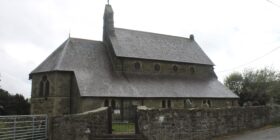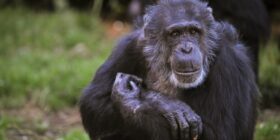Deeside solar park: Environmental Impact key to influencing planning decision

Deeside solar park the 270-acre site currently under arable farming use close to the Industrial park was granted planning permission back in July, its anticipated enough power for 11,000 homes will be generated over its 25-year lifespan.
Atmos ecological consultants say the key to them helping Compton, the company behind the solar park, secure planning permission was their input into the ‘Environmental Impact Assessment‘ allowing Compton to develop a comprehensive habitat management plan that satisfied planners and the RSPB.
As well as optimising use of the space between rows of panels, which will be planted with a variety of seed mixes to provide habitat for farmland birds and invertebrates, Compton has willingly allocated a 19 hectare ecological enhancement area, located between the development area and adjacent RSPB Burton Mere Wetlands reserve.
The nearby Dee Estuary is a statutorily designated site of Special Scientific Interest, Special Areas of Conservation and Special Protection Areas, Bewick’s swans form part of the overwintering assemblage of the SPA.
The site was considered to be an area of national importance for Bewick’s swans. Pro-active management of the crops and grasses grown in the ecological enhancement area will ensure that the birds are afforded suitable habitat on an annual basis for the lifetime of the solar park.
This is seen as an improvement on the current management regime which doesn’t offer suitable habitat on an annual basis in accordance with cropping rotation.
“Solar farms provide good opportunities for biodiversity enhancement, particularly for declining farmland birds and invertebrates,” said Atmos’ Senior Ecologist Lee Bagnall. Developers fund the costs of habitat enhancement as well as producing clean energy.
Given sympathetic and landscape and visual impact assessment planning as well, the case for solar farms seems to be compelling.
“This project has been a delight to work on,” said Lee Bagnall. “Compton engaged willingly with their responsibilities and the opportunities for habitat enhancement and community involvement; and the local RSPB contacts have shared their knowledge and expertise generously.
“We are confident that the plans we have developed will provide measurable ecological benefits to the site during the life of the solar farm.”
Spotted something? Got a story? Send a Facebook Message | A direct message on Twitter | Email: [email protected]Latest News









